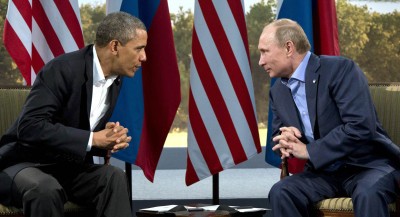
Russia V. NATO, they say, yet In 2012 Russian President Vladimir Putin signed the bill ratifying the county’s entry to the World Trade Organisation (WTO) concluding some eighteen years of negotiations.
The Kremlin press office announced the decision after the lower house of parliament, the State Duma, and the upper house, the Federation Council, approved the accession in July 2012, with the measure becoming a law within the following 30 days.
So why would war become reality between NATO and Russia when both are controlled by the dictate of the IMF? Only one possible truthful answer is the reason for such madness, the controlling force of all economies needs to destroy millions of people coming under the umbrella of NATO and Russia, and to re-order the balance of credit and debt in all nations that would be sucked into a third world war. This is the path to a global economy after the total destruction of all individual economies.
After one year of Russia’s entry into the WTO we can see clearly that Russia is following the same financial policies of all NATO nations driving everything to reduce the capitol available to the government from exports. So those in the West that present Putin’s Russia as some sort of shining knight moving against the new financial order, are quite simply ignorant of the facts, or they are pushing the communist austerity programme which removes all property ownership to the corporate state. The same is true of China who joined the Bank for International Settlements network web in 2001, a move that left only one other major economy outside the global trading cartel, the Russian economy.
Tariff cuts where a key condition for Russia’s membership of the WTO and had to lower 6% from the 2012 average level of 9.5% within three years. Experts, predicted that Russia’s membership would boost its exposure to competition leading to an increase to its GDP as much as 11% the long term.
Russia, is the ninth largest global economy and was the 156th country to join the WTO, the hopes are that the move would reduce its dependence on oil and gas exports.
The reality in Russia after one years membership :
There are several reasons for this. First, by the time Russia acceded to the WTO, the average import customs duty had dropped from 20-22 percent in the early 2000s to 10.4 percent. In the coming years, under the terms of our accession to the WTO, it is expected to drop to just 7.8 percent. In addition, the cut in tariffs for the most overvalued goods, such as alcohol, has been postponed until 2016-2018, so consumers do not feel any change.
Second, the Russian authorities are already doing and will continue to do all they can to prevent imported goods competing with domestic ones. The cut in the duties on cars has already been offset by the disposal charge the cut in alcohol duties will be balanced by a rise in excise taxes, etc. Besides, to limit imports (of pigs, for example) veterinary or epidemiological reasons can always be found.
Third, the trade system today, even if import prices (and, therefore, costs) are cut, has no serious reason for cutting retail prices because consumer demand is high. So, in spite of the growth of imports in the first half of 2013 (by 5-9 percent for food and 12 percent for clothing and footwear), prices are not going down and will not do so in the near future.
Today, it can be said that the only beneficiary (among economic sectors) is retail trade. As of September 1, import tariffs will be cut by a further 1-3 percent on more than 5,000 goods, a move which will bring extra profits of $300 to $400 million to traders. Yet, even that move is unlikely to make a difference to the majority of consumers.
The other sectors of the economy have not yet gained much from our accession to the WTO. Commodity exports are not regulated by its rules and the 100 or so restrictive measures with regard to Russian goods will not be lifted until 2015-2017.
Likewise, there is no visible breakthrough in agriculture, which, considering Russia’s potential for organic farming, might have anticipated changes: our main potential market, the European Union, is largely protected by the Common Agricultural Policy (CAP), and breaking into that market would be a challenge.
Further Study
Russia Can’t Help Greece
Comparisons between Bank for International Settlements, (BIS) guidelines pre WWII, with those of today
Tags : Tariff cuts, The Kremlin, Vladimir Putin, World Trade Organisation (WTO)